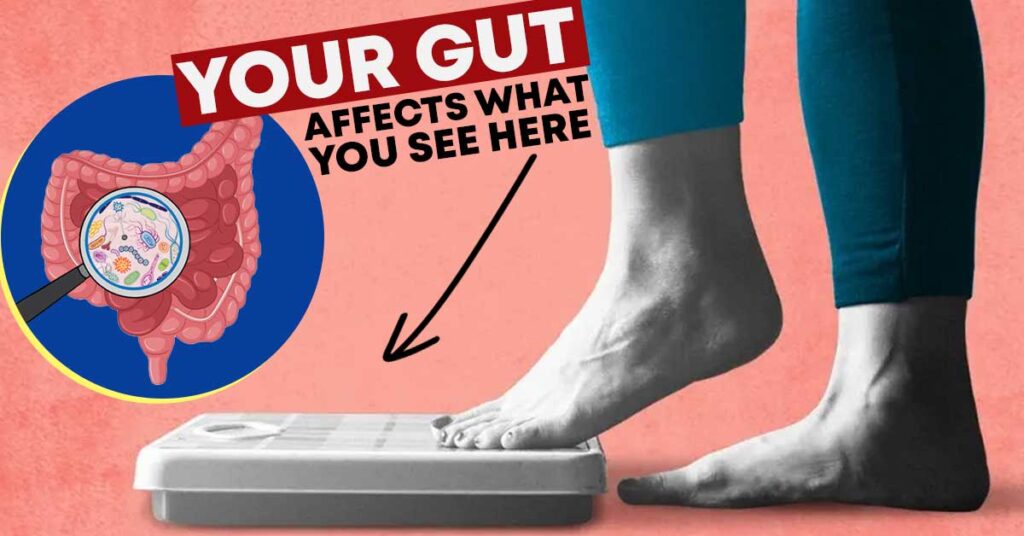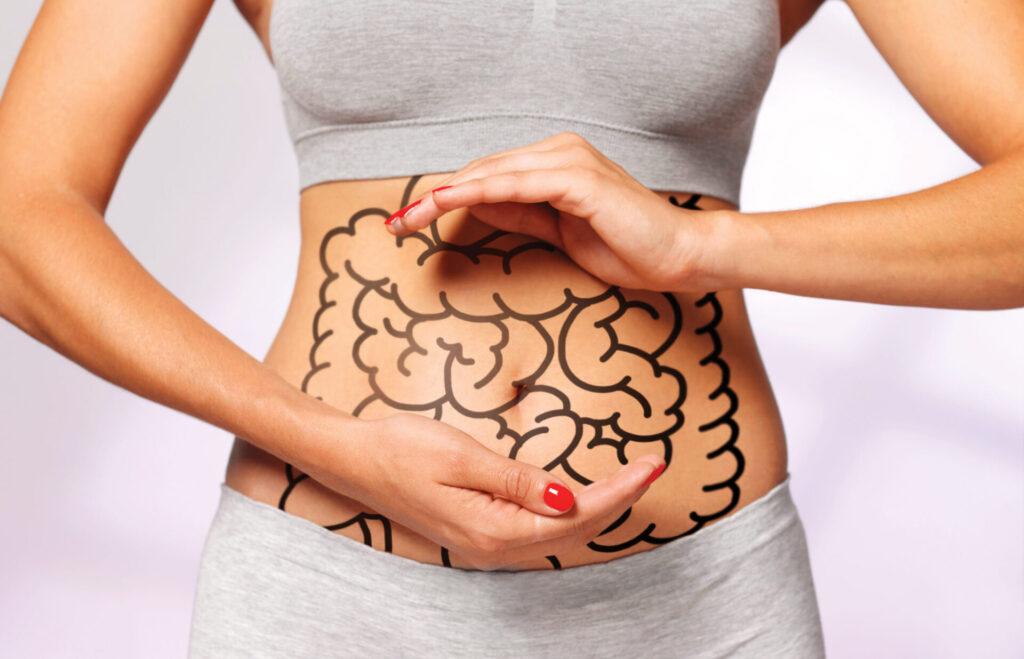Gut Health And Weight Loss: The Surprising Link You Need To Know
Gut health plays a crucial role in weight loss, influencing digestion, metabolism, and even fat storage. A balanced gut microbiome can improve nutrient absorption and regulate appetite. By choosing gut-friendly foods like fiber-rich vegetables, fermented foods, and probiotics, you can enhance your weight loss efforts and overall well-being.

Gut Health And Weight Loss: The Surprising Link You Need To Know
Have you ever wondered why some people seem to effortlessly lose weight while others struggle with it?
The answer may lie in the health of their gut. Research has shown a strong connection between gut health and weight loss, and understanding this connection could be the key to achieving your weight loss goals.
The gut, also known as the gastrointestinal tract, is crucial to our overall health. It is responsible for digesting food, absorbing nutrients, and eliminating waste. But did you know it is also home to trillions of bacteria known as the gut microbiota? These bacteria have a significant impact on our weight and metabolism.
In recent years, scientists have discovered that the composition and diversity of our gut microbiota can influence our body weight and even our ability to lose weight. Imbalances in the gut microorganisms have been linked to obesity, metabolic disorders, and other health issues. By improving your gut’s health, you may accelerate your weight loss journey and improve your overall well-being.
In this post, we will explore the fascinating connection between gut health and weight loss and provide you with practical tips to optimize your gut health for effective weight loss.
The Role of Gut Bacteria
Gut bacteria play a crucial role in maintaining our overall health and well-being. Known as the gut microbiota, these microorganisms are involved in vital physiological processes such as digestion, nutrient absorption, and immune system regulation. They also produce essential vitamins and help metabolize specific dietary components that our bodies cannot break down alone.
Recent research has revealed that gut bacteria can influence not only our digestive health but also our mental health and metabolism. Imbalances in the gut microbiota have been linked to a range of conditions, including obesity, diabetes, and autoimmune disorders.
Given their impact on so many aspects of health, maintaining a healthy balance of gut bacteria is essential. By optimizing the diversity and composition of the gut microbiota, we can enhance our overall well-being and potentially prevent a variety of health issues.
How Weight Loss And Gut Health Work Together
Gut health plays a crucial role in maintaining a healthy weight. When the balance of the gut microbiota is disrupted, it can lead to various health issues, including weight gain or difficulty losing weight. An imbalance in the gut can cause metabolic disruptions, increased inflammation, and alterations in hunger and satiety hormones, all of which may contribute to weight gain.
In contrast, a healthy gut supports efficient digestion, proper nutrient absorption, and effective waste elimination—key factors for successful weight management. When your gut functions optimally, it can help regulate your metabolism, making it easier to maintain or achieve a healthy weight.
Probiotics, the beneficial bacteria that support gut health, have gained attention for their potential role in weight loss. Research has shown that the gut microbiota plays a significant role in metabolism and weight regulation. Probiotics may help restore balance in the gut microbiota, improve digestion, and support the body’s ability to manage weight. As a result, scientists are increasingly exploring the relationship between probiotics and weight management, showing promising potential for gut health as a key player in effective weight loss.

Gut Microbiota Composition
The gut microbiota is a complex and diverse ecosystem of trillions of microorganisms, including bacteria, viruses, fungi, and other microbes. This microbial community plays a pivotal role in digestion, immune function, and overall health. Each person has a unique gut microbiota composition, influenced by various factors such as diet, lifestyle, and genetics.
Research indicates that the balance of gut bacteria can impact weight management. For example, individuals with an imbalance in gut bacteria, particularly those with a higher ratio of Firmicutes to Bacteroidetes (two predominant bacterial phyla), may experience weight gain or obesity. Firmicutes are more efficient at extracting calories from food, while Bacteroidetes are associated with leaner body types.
Probiotics, which are beneficial live bacteria, can help modulate the gut microbiota composition, promoting a balanced microbial community that supports healthy weight management. By supporting the growth of beneficial bacteria and inhibiting the growth of harmful ones, probiotics can play a significant role in preventing obesity and improving metabolic health.
Energy Harvesting
One of the primary ways in which the gut microbiota influences weight management is through energy harvesting. Certain bacteria in the gut are capable of extracting more calories from food than others, leading to increased calorie absorption and weight gain.
When the gut microbiota is out of balance, this process can result in excess energy storage, making it harder to lose weight. Probiotics help restore balance to the gut microbiota, preventing the over-extraction of calories and promoting more efficient digestion and absorption. This rebalancing can support healthy weight management by reducing excess calorie absorption.
Appetite Regulation
Probiotics also appear to influence appetite regulation, which plays a critical role in weight management. Studies suggest that certain probiotic strains can modulate the production of appetite-regulating hormones, including ghrelin (the hunger hormone) and leptin (the satiety hormone).
By regulating the levels of these hormones, probiotics may help control food cravings, reduce appetite, and promote feelings of fullness. This hormone modulation can lead to better control over eating habits and prevent overeating, ultimately supporting weight loss efforts.
Inflammation and Metabolic Health
Chronic low-grade inflammation is a key factor in obesity and metabolic disorders such as insulin resistance and metabolic syndrome. This type of inflammation can contribute to weight gain and make it difficult to lose weight.
Probiotics have been shown to have anti-inflammatory properties, which help reduce systemic inflammation and improve metabolic health. By promoting a healthy gut microbiota and reducing inflammation, probiotics can help prevent insulin resistance, support blood sugar regulation, and enhance overall metabolic function—all of which contribute to more effective weight management.
In conclusion, gut microbiota composition plays a central role in weight regulation, and maintaining a balanced microbiota through diet, probiotics, and healthy lifestyle choices can promote better weight management. The combination of probiotics’ effects on energy harvesting, appetite regulation, and inflammation offers a comprehensive approach to achieving and maintaining a healthy weight.
Lifestyle Factors of Gut Health and Weight Loss
It is important to note that probiotics are not a miracle cure for weight loss. They should be part of a broader strategy that includes a healthy diet and regular physical activity.
Lifestyle factors like stress levels, sleep quality, and exercise can also influence gut microorganisms and overall weight management. Combining probiotics with a healthy lifestyle is likely to yield the best results.
Exercise
Another critical factor in optimizing gut health for weight loss is exercise. Regular physical activity can help reduce inflammation, improve metabolism, and promote beneficial gut bacteria growth.
In addition, exercise can increase feelings of fullness and regulate appetite, making it easier to stick to a healthy diet plan. Furthermore, regular exercise can help manage cortisol levels and reduce stress, leading to better gut health and weight loss.
While research into the relationship between probiotics and weight management is ongoing, evidence suggests that probiotics can help support a healthy weight. However, selecting the right probiotic strains is critical, as different strains may have varying effects.
Optimize Gut Health for Effective Weight Loss
Optimizing your gut health is a powerful tool for achieving effective weight loss. The gut plays a crucial role in digestion, metabolism, and overall health, making it essential to maintain a balanced and healthy gut microbiota. Here’s how you can improve your gut health to support your weight loss journey:
1. Eat a Fiber-Rich Diet: Fiber is essential for gut health and weight management. It acts as food for beneficial gut bacteria and aids in digestion. By consuming a variety of fiber-rich foods like fruits, vegetables, beans, nuts, and whole grains, you can support gut bacteria and control your hunger, preventing overeating.
2. Include Probiotics: Probiotics are beneficial bacteria that help maintain a healthy gut balance. They support digestion, reduce inflammation, and improve nutrient absorption—all of which contribute to weight loss. You can find probiotics in foods like yogurt, kefir, sauerkraut, and kimchi, or opt for a daily probiotic supplement.
3. Manage Stress: High stress levels can harm your gut microbiota, leading to imbalances that may contribute to weight gain. Reducing stress through practices like exercise, meditation, and relaxation techniques can help restore balance to your gut and support healthy weight management.
4. Consult Healthcare Professionals: For personalized advice and guidance on optimizing your gut health, it’s important to consult healthcare professionals like dietitians or doctors. They can help you choose the best probiotics and recommend a tailored diet plan that suits your unique needs.
Quick Checklist for Better Gut Health and Weight Loss:
- Eat a variety of high-fiber foods daily.
- Incorporate probiotics into your diet through food or supplements.
- Find stress-reducing activities like exercise, meditation, or hobbies.
- Consult a healthcare professional for personalized gut health advice.
At Momentum Medical, we believe in a holistic approach to weight management. Our comprehensive weight-loss program and expert healthcare services are designed to help you optimize gut health and achieve lasting weight loss results. Contact us today to get started on your journey to better health and wellness!





